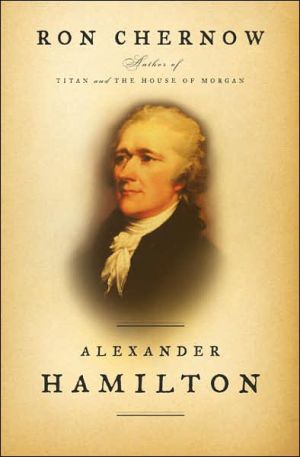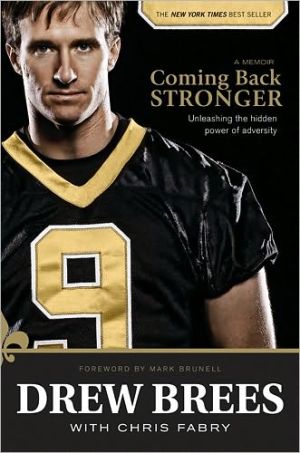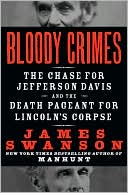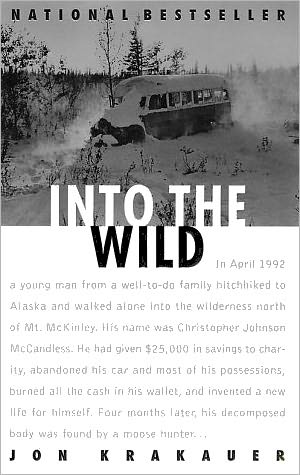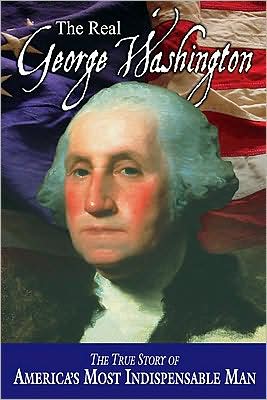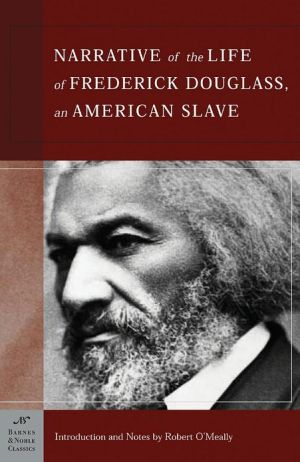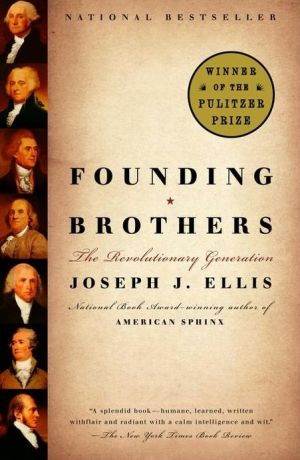Alexander Hamilton
In the first full-length biography of Alexander Hamilton in decades, National Book Award winner Ron Chernow tells the riveting story of a man who overcame all odds to shape, inspire, and scandalize the newborn America. According to historian Joseph Ellis, Alexander Hamilton is “a robust full-length portrait, in my view the best ever written, of the most brilliant, charismatic and dangerous founder of them all.”\ Few figures in American history have been more hotly debated or more grossly...
Search in google:
From National Book Award winner Ron Chernow, a landmark biography of Alexander Hamilton, the Founding Father who galvanized, inspired, scandalized, and shaped the newborn nation. Ron Chernow, whom the New York Times called "as elegant an architect of monumental histories as we've seen in decades," now brings to startling life the man who was arguably the most important figure in American history, who never attained the presidency, but who had a far more lasting impact than many who did. An illegitimate, largely self-taught orphan from the Caribbean, Hamilton rose with stunning speed to become George Washington's aide-de-camp, a member of the Constitutional Convention, coauthor of The Federalist Papers, leader of the Federalist party, and the country's first Treasury secretary. With masterful storytelling skills, Chernow presents the whole sweep of Hamilton's turbulent life: his exotic, brutal upbringing; his brilliant military, legal, and financial exploits; his titanic feuds with Jefferson, Madison, Adams, and Monroe; his illicit romances; and his famous death in a duel with Aaron Burr in July 1804. For the first time, Chernow captures the personal life of this handsome, witty, and perennially controversial genius and explores his poignant relations with his wife Eliza, their eight children, and numberless friends. This engrossing narrative will dispel forever the stereotype of the Founding Fathers as wooden figures and show that, for all their greatness, they were fiery, passionate, often flawed human beings. Alexander Hamilton was one of the seminal figures in our history. His richly dramatic saga, rendered in Chernow's vivid prose, is nothing less than a riveting account of America's founding, from the Revolutionary War to the rise of the first federal government. Caspar Weinberger - Forbes This has been an especially good reading summer for devotees of American Colonial and Revolutionary his-tory. First and, in my opinion, the best of the many new books covering this period is Washington's Crossing--by David Hackett Fischer (Oxford University Press, $35). Professor Fischer is a noted historian, whose Albion's Seed, published in 1989, tells the story of those descendants of the British who settled here and helped create the United States. His Paul Revere's Ride has also been widely and justly praised. Washington's Crossing tells the complete story of General George Washington's most daring, risky and successful venture early in the war. Following a succession of victories by the British and their mercenary forces, which had resultedin the loss of New York for the Americans, the British were within sight of Philadelphia, where the new American Congress was sitting. Washington's army had been all but destroyed, and the British were surging across New Jersey. Washington's decision to cross the Delaware River on Christmas night 1776, when it was considered virtually impossible, was a move both bold and foolhardy. A flotilla of small boats crammed with soldiers, guns and horses somehow rowed across the river through one of the East's worst winter snow and ice storms. (The crossing as painted by Emanuel Leutze in 1851 captured this event spiritually and has become a great icon of the Revolution.) By crossing the Delaware, Washington placed the remnants of his army in a position to trap the British behind Trenton and, a few days later, to give that army and the cause for which it fought its first real victory. In many ways the shots fired atTrenton were the shots "heard round the world." Professor Fischer conveys in a remarkably realistic way what combat and the fog of war are actually like. But, more important, he tells the story of what it was like for Washington to lead a discouraged, underequipped army that was constantly being micromanaged by a divided Congress that couldn't--at least at the beginning--decide whether it wanted independence or, simply, to get the Stamp Act repealed. For those who still wonder how the Revolutionaries ever defeated the huge British forces arrayed against them, both on land and at sea, this book makes clear that it was the military genius and leadership of George Washing-ton that turned almost certain defeat into victory. Washington's Crossing is an essential and exciting key to a more complete understanding and appreciation of what our ancestors did to win the Revolution. A new biography, Alexander Hamilton by Ron Chernow (Penguin Press, $35), is another superb book I read this summer. Hamilton served as principal aide to General Washington from the early days of the Revolu-tion. This gave him a ringside seat at the formation of the United States and its implausible victory over the British, who had deployed one of the world's finest military machines but lost to a ragtag army of upstarts. Chernow's splendid, thorough and brilliantly written biography gives us a new understanding of Hamilton's vi-tal role during the war and immediately after as Secretary of the Treasury of this new entity on the world's stage. I doubt that many people realize how much of our country's financial structure we owe to Alexander Hamilton. This book goes beyond the standard fare offered in most American history classes. Hamilton's towering intellect, as well as his many faults, and his long, fierce disagreements with Thomas Jefferson, John Adams and many of the other Founding Fathers are presented here with almost shocking candor. There have been other biographies of Hamilton, but Chernow's is far and away the most comprehensive and compelling of any I have read. It is a fitting tribute to the man who set the U.S. on the path that has made our nation the economic leader of the world. Another treat for Revolutionary history enthusiasts is The Americanization of Benjamin Franklin by Gordon S. Wood (Penguin Press, $25.95). This delightful new study focuses on the actual aristocratic and elitist views and opinions of this so-called populist leader, who was one of our best-loved, most influential and renowned spokesmen to the world. Moving away from Revolutionary times, I next read, and thoroughly enjoyed, Miles Gone By: A Literary Autobiography byWilliam F. Buckley Jr. (Regnery Publishing, $29.95). Buckley, a major founder of today's sen-sible conservatism, has led an extraordinary life, which fully matches his extraordinary talents. His subtitle is apt, as the book contains essays on sailing, skiing, music, old friends and colleagues and all manner of other diverse subjects, which are united in that they have all been of interest to one of the best minds and writers in America today.
PROLOGUE\ THE OLDEST REVOLUTIONARY WAR WIDOW\ In the early 1850s, few pedestrians strolling past the house on H Street in Washington, near the White House, realized that the ancient widow seated by the window, knitting and arranging flowers, was the last surviving link to the glory days of the early republic. Fifty years earlier, on a rocky, secluded ledge overlooking the Hudson River in Weehawken, New Jersey, Aaron Burr, the vice president of the United States, had fired a mortal shot at her husband, Alexander Hamilton, in a misbegotten effort to remove the man Burr regarded as the main impediment to the advancement of his career. Hamilton was then forty-nine years old. Was it a benign or a cruel destiny that had compelled the widow to outlive her husband by half a century, struggling to raise seven children and surviving almost until the eve of the Civil War?\ Elizabeth Schuyler Hamilton-purblind and deaf but gallant to the end-was a stoic woman who never yielded to self-pity. With her gentle manner, Dutch tenacity, and quiet humor, she clung to the deeply rooted religious beliefs that had abetted her reconciliation to the extraordinary misfortunes she had endured. Even in her early nineties, she still dropped to her knees for family prayers. Wrapped in shawls and garbed in the black bombazine dresses that were de rigueur for widows, she wore a starched white ruff and frilly white cap that bespoke a simpler era in American life. The dark eyes that gleamed behind large metal-rimmed glasses-those same dark eyes that had once enchanted a young officer on General George Washington's staff-betokened a sharp intelligence, a fiercely indomitable spirit, and a memory that refused to surrender the past.\ In the front parlor of the house she now shared with her daughter, Eliza Hamilton had crammed the faded memorabilia of her now distant marriage. When visitors called, the tiny, erect, white-haired lady would grab her cane, rise gamely from a black sofa embroidered with a floral pattern of her own design, and escort them to a Gilbert Stuart painting of George Washington. She motioned with pride to a silver wine cooler, tucked discreetly beneath the center table, that had been given to the Hamiltons by Washington himself. This treasured gift retained a secret meaning for Eliza, for it had been a tacit gesture of solidarity from Washington when her husband was ensnared in the first major sex scandal in American history. The tour's highlight stood enshrined in the corner: a marble bust of her dead hero, carved by an Italian sculptor, Giuseppe Ceracchi, during Hamilton's heyday as the first treasury secretary. Portrayed in the classical style of a noble Roman senator, a toga draped across one shoulder, Hamilton exuded a brisk energy and a massive intelligence in his wide brow, his face illumined by the half smile that often played about his features. This was how Eliza wished to recall him: ardent, hopeful, and eternally young. "That bust I can never forget," one young visitor remembered, "for the old lady always paused before it in her tour of the rooms and, leaning on her cane, gazed and gazed, as if she could never be satisfied."\ For the select few, Eliza unearthed documents written by Hamilton that qualified as her sacred scripture: an early hymn he had composed or a letter he had drafted during his impoverished boyhood on St. Croix. She frequently grew melancholy and longed for a reunion with "her Hamilton," as she invariably referred to him. "One night, I remember, she seemed sad and absent-minded and could not go to the parlor where there were visitors, but sat near the fire and played backgammon for a while," said one caller. "When the game was done, she leaned back in her chair a long time with closed eyes, as if lost to all around her. There was a long silence, broken by the murmured words, 'I am so tired. It is so long. I want to see Hamilton.'"1\ Eliza Hamilton was committed to one holy quest above all others: to rescue her husband's historical reputation from the gross slanders that had tarnished it. For many years after the duel, Thomas Jefferson, John Adams, and other political enemies had taken full advantage of their eloquence and longevity to spread defamatory anecdotes about Hamilton, who had been condemned to everlasting silence. Determined to preserve her husband's legacy, Eliza enlisted as many as thirty assistants to sift through his tall stacks of papers. Unfortunately, she was so self-effacing and so reverential toward her husband that, though she salvaged every scrap of his writing, she apparently destroyed her own letters. The capstone of her monumental labor, her life's "dearest object," was the publication of a mammoth authorized biography that would secure Hamilton's niche in the pantheon of the early republic. It was a long, exasperating wait as one biographer after another discarded the project or expired before its completion. Almost by default, the giant enterprise fell to her fourth son, John Church Hamilton, who belatedly disgorged a seven-volume history of his father's exploits. Before this hagiographic tribute was completed, however, Eliza Hamilton died at ninety-seven on November 9, 1854.\ Distraught that their mother had waited vainly for decades to see her husband's life immortalized, Eliza Hamilton Holly scolded her brother for his overdue biography. "Lately in my hours of sadness, recurring to such interests as most deeply affected our blessed Mother...I could recall none more frequent or more absorbent than her devotion to our Father. When blessed memory shows her gentle countenance and her untiring spirit before me, in this one great and beautiful aspiration after duty, I feel the same spark ignite and bid me...to seek the fulfillment of her words: 'Justice shall be done to the memory of my Hamilton.'"2 It was, Eliza Hamilton Holly noted pointedly, the imperative duty that Eliza had bequeathed to all her children: Justice shall be done to the memory of my Hamilton.\ Well, has justice been done? Few figures in American history have aroused such visceral love or loathing as Alexander Hamilton. To this day, he seems trapped in a crude historical cartoon that pits "Jeffersonian democracy" against "Hamiltonian aristocracy." For Jefferson and his followers, wedded to their vision of an agrarian Eden, Hamilton was the American Mephistopheles, the proponent of such devilish contrivances as banks, factories, and stock exchanges. They demonized him as a slavish pawn of the British Crown, a closet monarchist, a Machiavellian intriguer, a would-be Caesar. Noah Webster contended that Hamilton's "ambition, pride, and overbearing temper" had destined him "to be the evil genius of this country."3 Hamilton's powerful vision of American nationalism, with states subordinate to a strong central government and led by a vigorous executive branch, aroused fears of a reversion to royal British ways. His seeming solicitude for the rich caused critics to portray him as a snobbish tool of plutocrats who was contemptuous of the masses. For another group of naysayers, Hamilton's unswerving faith in a professional military converted him into a potential despot. "From the first to the last words he wrote," concluded historian Henry Adams, "I read always the same Napoleonic kind of adventuredom."4 Even some Hamilton admirers have been unsettled by a faint tincture of something foreign in this West Indian transplant; Woodrow Wilson grudgingly praised Hamilton as "a very great man, but not a great American."5\ Yet many distinguished commentators have echoed Eliza Hamilton's lament that justice has not been done to her Hamilton. He has tended to lack the glittering multivolumed biographies that have burnished the fame of other founders. The British statesman Lord Bryce singled out Hamilton as the one founding father who had not received his due from posterity. In The American Commonwealth, he observed, "One cannot note the disappearance of this brilliant figure, to Europeans the most interesting in the early history of the Republic, without the remark that his countrymen seem to have never, either in his lifetime or afterwards, duly recognized his splendid gifts."6 During the robust era of Progressive Republicanism, marked by brawny nationalism and energetic government, Theodore Roosevelt took up the cudgels and declared Hamilton "the most brilliant American statesman who ever lived, possessing the loftiest and keenest intellect of his time."7 His White House successor, William Howard Taft, likewise embraced Hamilton as "our greatest constructive statesman."8 In all probability, Alexander Hamilton is the foremost political figure in American history who never attained the presidency, yet he probably had a much deeper and more lasting impact than many who did.\ Hamilton was the supreme double threat among the founding fathers, at once thinker and doer, sparkling theoretician and masterful executive. He and James Madison were the prime movers behind the summoning of the Constitutional Convention and the chief authors of that classic gloss on the national charter, The Federalist, which Hamilton supervised. As the first treasury secretary and principal architect of the new government, Hamilton took constitutional principles and infused them with expansive life, turning abstractions into institutional realities. He had a pragmatic mind that minted comprehensive programs. In contriving the smoothly running machinery of a modern nation-state-including a budget system, a funded debt, a tax system, a central bank, a customs service, and a coast guard-and justifying them in some of America's most influential state papers, he set a high-water mark for administrative competence that has never been equaled. If Jefferson provided the essential poetry of American political discourse, Hamilton established the prose of American statecraft. No other founder articulated such a clear and prescient vision of America's future political, military, and economic strength or crafted such ingenious mechanisms to bind the nation together.\ Hamilton's crowded years as treasury secretary scarcely exhaust the epic story of his short life, which was stuffed with high drama. From his illegitimate birth on Nevis to his bloody downfall in Weehawken, Hamilton's life was so tumultuous that only an audacious novelist could have dreamed it up. He embodied an enduring archetype: the obscure immigrant who comes to America, re-creates himself, and succeeds despite a lack of proper birth and breeding. The saga of his metamorphosis from an anguished clerk on St. Croix to the reigning presence in George Washington's cabinet offers both a gripping personal story and a panoramic view of the formative years of the republic. Except for Washington, nobody stood closer to the center of American politics from 1776 to 1800 or cropped up at more turning points. More than anyone else, the omnipresent Hamilton galvanized, inspired, and scandalized the newborn nation, serving as the flash point for pent-up conflicts of class, geography, race, religion, and ideology. His contemporaries often seemed defined by how they reacted to the political gauntlets that he threw down repeatedly with such defiant panache.\ Hamilton was an exuberant genius who performed at a fiendish pace and must have produced the maximum number of words that a human being can scratch out in forty-nine years. If promiscuous with his political opinions, however, he was famously reticent about his private life, especially his squalid Caribbean boyhood. No other founder had to grapple with such shame and misery, and his early years have remained wrapped in more mystery than those of any other major American statesman. While not scanting his vibrant intellectual life, I have tried to gather anecdotal material that will bring this cerebral man to life as both a public and a private figure. Charming and impetuous, romantic and witty, dashing and headstrong, Hamilton offers the biographer an irresistible psychological study. For all his superlative mental gifts, he was afflicted with a touchy ego that made him querulous and fatally combative. He never outgrew the stigma of his illegitimacy, and his exquisite tact often gave way to egregious failures of judgment that left even his keenest admirers aghast. If capable of numerous close friendships, he also entered into titanic feuds with Jefferson, Madison, Adams, Monroe, and Burr.\ The magnitude of Hamilton's feats as treasury secretary has overshadowed many other facets of his life: clerk, college student, youthful poet, essayist, artillery captain, wartime adjutant to Washington, battlefield hero, congressman, abolitionist, Bank of New York founder, state assemblyman, member of the Constitutional Convention and New York Ratifying Convention, orator, lawyer, polemicist, educator, patron saint of the New-York Evening Post, foreign-policy theorist, and major general in the army. Boldly uncompromising, he served as catalyst for the emergence of the first political parties and as the intellectual fountainhead for one of them, the Federalists. He was a pivotal force in four consecutive presidential elections and defined much of America's political agenda during the Washington and Adams administrations, leaving copious commentary on virtually every salient issue of the day.\ Earlier generations of biographers had to rely on only a meager portion of his voluminous output. Between 1961 and 1987, Harold C. Syrett and his doughty editorial team at Columbia University Press published twenty-seven thick volumes of Hamilton's personal and political papers. Julius Goebel, Jr., and his staff added five volumes of legal and business papers to the groaning shelf, bringing the total haul to twenty-two thousand pages. These meticulous editions are much more than exhaustive compilations of Hamilton's writings: they are a scholar's feast, enriched with expert commentary as well as contemporary newspaper extracts, letters, and diary entries. No biographer has fully harvested these riches. I have supplemented this research with extensive archival work that has uncovered, among other things, nearly fifty previously undiscovered essays written by Hamilton himself. To retrieve his early life from its often impenetrable obscurity, I have also scoured records in Scotland, England, Denmark, and eight Caribbean islands, not to mention many domestic archives. The resulting portrait, I hope, will seem fresh and surprising even to those best versed in the literature of the period.\ It is an auspicious time to reexamine the life of Hamilton, who was the prophet of the capitalist revolution in America. If Jefferson enunciated the more ample view of political democracy, Hamilton possessed the finer sense of economic opportunity. He was the messenger from a future that we now inhabit. We have left behind the rosy agrarian rhetoric and slaveholding reality of Jeffersonian democracy and reside in the bustling world of trade, industry, stock markets, and banks that Hamilton envisioned. (Hamilton's staunch abolitionism formed an integral feature of this economic vision.) He has also emerged as the uncontested visionary in anticipating the shape and powers of the federal government. At a time when Jefferson and Madison celebrated legislative power as the purest expression of the popular will, Hamilton argued for a dynamic executive branch and an independent judiciary, along with a professional military, a central bank, and an advanced financial system. Today, we are indisputably the heirs to Hamilton's America, and to repudiate his legacy is, in many ways, to repudiate the modern world.\ —from Alexander Hamiton by Ron Chernow, copyright © 2004 Ron Chernow, published by The Penguin Press, a member of Penguin Group (USA) Inc., all rights reserved, reprinted with permission from the publisher."
Author's Note\ \ Prologue: The Oldest Revolutionary War Widow\ One: The Castaways\ Two: Hurricane\ Three: The Collegian\ Four: The Pen and the Sword\ Five: The Little Lion\ Six: A Frenzy of Valor\ Seven: The Lovesick Colonel\ Eight: Glory\ Nine: Raging Billows\ Ten: A Grave, Silent, Strange Sort of Animal\ Eleven: Ghosts\ Twelve: August and Respectable Assembly\ Thirteen: Publius\ Fourteen: Putting the Machine in Motion\ Fifteen: Villainous Business Sixteen: Dr. Pangloss\ Seventeen: The First Town in America\ Eighteen: Of Avarice and Enterprise\ Nineteen: City of the Future\ Twenty: Corrupt Squadrons\ Twenty-One: Exposure\ Twenty-Two: Stabbed in the Dark\ Twenty-Three: Citizen Genet\ Twenty-Four: A Disagreeable Trade\ Twenty-Five: Seas of Blood\ Twenty-Six: The Wicked Insurgents of the West\ Twenty-Seven: Sugar Plums and Toys\ Twenty-Eight: Spare Cassius\ Twenty-Nine: The Man in the Glass Bubble\ Thirty: Flying Too Near the Sun\ Thirty-One: An Instrument of Hell\ Thirty-Two: Reign of Witches\ Thirty-Three: Works Godly and Ungodly\ Thirty-Four: In an Evil Hour\ Thirty-Five: Gusts of Passion\ Thirty-Six: In a Very Belligerent Humor\ Thirty-Seven: Deadlock\ Thirty-Eight: A World Full of Folly\ Thirty-Nine: Pamphlet Wars\ Forty: The Price of Truth\ Forty-One: A Despicable Opinion\ Forty-Two: Fatal Errand\ Forty-Three: The Melting Scene\ Epilogue: Eliza\ Acknowledgments Notes Bibliography Selected Books, Pamphlets, and Dissertations Selected Articles Index\
\ ForbesThis has been an especially good reading summer for devotees of American Colonial and Revolutionary his-tory. First and, in my opinion, the best of the many new books covering this period is Washington's Crossing--by David Hackett Fischer (Oxford University Press, $35). Professor Fischer is a noted historian, whose Albion's Seed, published in 1989, tells the story of those descendants of the British who settled here and helped create the United States. His Paul Revere's Ride has also been widely and justly praised.\ Washington's Crossing tells the complete story of General George Washington's most daring, risky and successful venture early in the war. Following a succession of victories by the British and their mercenary forces, which had resultedin the loss of New York for the Americans, the British were within sight of Philadelphia, where the new American Congress was sitting.\ Washington's army had been all but destroyed, and the British were surging across New Jersey. Washington's decision to cross the Delaware River on Christmas night 1776, when it was considered virtually impossible, was a move both bold and foolhardy. A flotilla of small boats crammed with soldiers, guns and horses somehow rowed across the river through one of the East's worst winter snow and ice storms. (The crossing as painted by Emanuel Leutze in 1851 captured this event spiritually and has become a great icon of the Revolution.) By crossing the Delaware, Washington placed the remnants of his army in a position to trap the British behind Trenton and, a few days later, to give that army and the cause for which it fought its first real victory. In many ways the shots fired atTrenton were the shots "heard round the world."\ Professor Fischer conveys in a remarkably realistic way what combat and the fog of war are actually like. But, more important, he tells the story of what it was like for Washington to lead a discouraged, underequipped army that was constantly being micromanaged by a divided Congress that couldn't--at least at the beginning--decide whether it wanted independence or, simply, to get the Stamp Act repealed.\ For those who still wonder how the Revolutionaries ever defeated the huge British forces arrayed against them, both on land and at sea, this book makes clear that it was the military genius and leadership of George Washing-ton that turned almost certain defeat into victory. Washington's Crossing is an essential and exciting key to a more complete understanding and appreciation of what our ancestors did to win the Revolution.\ A new biography, Alexander Hamilton by Ron Chernow (Penguin Press, $35), is another superb book I read this summer. Hamilton served as principal aide to General Washington from the early days of the Revolu-tion. This gave him a ringside seat at the formation of the United States and its implausible victory over the British, who had deployed one of the world's finest military machines but lost to a ragtag army of upstarts.\ Chernow's splendid, thorough and brilliantly written biography gives us a new understanding of Hamilton's vi-tal role during the war and immediately after as Secretary of the Treasury of this new entity on the world's stage. I doubt that many people realize how much of our country's financial structure we owe to Alexander Hamilton. This book goes beyond the standard fare offered in most American history classes. Hamilton's towering intellect, as well as his many faults, and his long, fierce disagreements with Thomas Jefferson, John Adams and many of the other Founding Fathers are presented here with almost shocking candor.\ There have been other biographies of Hamilton, but Chernow's is far and away the most comprehensive and compelling of any I have read. It is a fitting tribute to the man who set the U.S. on the path that has made our nation the economic leader of the world.\ Another treat for Revolutionary history enthusiasts is The Americanization of Benjamin Franklin by Gordon S. Wood (Penguin Press, $25.95). This delightful new study focuses on the actual aristocratic and elitist views and opinions of this so-called populist leader, who was one of our best-loved, most influential and renowned spokesmen to the world.\ Moving away from Revolutionary times, I next read, and thoroughly enjoyed, Miles Gone By: A Literary Autobiography byWilliam F. Buckley Jr. (Regnery Publishing, $29.95). Buckley, a major founder of today's sen-sible conservatism, has led an extraordinary life, which fully matches his extraordinary talents. His subtitle is apt, as the book contains essays on sailing, skiing, music, old friends and colleagues and all manner of other diverse subjects, which are united in that they have all been of interest to one of the best minds and writers in America today.\ —Caspar Weinberger\ \ \ \ \ \ Michael LindIn Alexander Hamilton, Ron Chernow, the author of The House of Morgan, The Warburgs and Titan, a biography of John D. Rockefeller, has brought to life the Founding Father who did more than any other to create the modern United States … In this magisterial biography, Chernow tells the story not only of Hamilton but also of his wife, Eliza, a remarkable woman who died at the age of 97 in 1854. \ — The Washington Post\ \ \ Janet Maslin… Mr. Chernow sets himself a compelling task: to add a third dimension to conventional views of Hamilton while reaching beyond the limits of a personal portrait. If Alexander Hamilton reflects its subject's far from charismatic nature, it also provides a serious, far-reaching measure of his place in history. And Mr. Chernow has done a splendid job of capturing the backbiting political climate of Hamilton's times, to the point that no cow is sacred here. The "golden age of literary assassination in American politics," featuring Thomas Jefferson as a particularly self-serving schemer, sounds astonishingly familiar today.\ — The New York Times\ \ \ \ \ Publishers WeeklyAfter hulking works on J.P. Morgan, the Warburgs and John D. Rockefeller, what other grandee of American finance was left for Chernow's overflowing pen than the one who puts the others in the shade? Alexander Hamilton (1755-1804) created public finance in the United States. In fact, it's arguable that without Hamilton's political and financial strategic brilliance, the United States might not have survived beyond its early years. Chernow's achievement is to give us a biography commensurate with Hamilton's character, as well as the full, complex context of his unflaggingly active life. Possessing the most powerful (though not the most profound) intelligence of his gifted contemporaries, Hamilton rose from Caribbean bastardy through military service in Washington's circle to historic importance at an early age and then, in a new era of partisan politics, gradually lost his political bearings. Chernow makes fresh contributions to Hamiltoniana: no one has discovered so much about Hamilton's illegitimate origins and harrowed youth; few have been so taken by Hamilton's long-suffering, loving wife, Eliza. Yet it's hard not to cringe at some of Hamilton's hotheaded words and behavior, especially sacrificing the well-being of his family on the altar of misplaced honor. This is a fine work that captures Hamilton's life with judiciousness and verve. Illus. Agent, Melanie Jackson. (Apr 26) Forecast: National Book Award winner Chernow's reputation and track record with a previous bestseller could make Alexander Hamilton as popular with readers as Benjamin Franklin and John Adams. With a 300,000 first printing, Penguin is banking on it. Copyright 2004 Reed Business Information.\ \ \ \ \ Foreign AffairsReaders' interest in American history tends to oscillate between two periods: the Civil War and the Revolution. We are currently well into a Revolutionary period. A slew of best-selling historical works has been published in recent years on the American Founders — including studies of Thomas Jefferson, George Washington, Benjamin Franklin, and John Adams. Now, Ron Chernow has produced an original, illuminating, and highly readable study of Alexander Hamilton that admirably introduces readers to Hamilton's personality and accomplishments. \ Chernow penetrates more deeply into the mysteries of Hamilton's origins and family life than any previous biographer. And what a family it was. Hamilton, the only immigrant in the first ranks of the Founders, was the illegitimate son of a downwardly mobile Scottish father and a free-living and free-thinking woman of the West Indies. These difficult origins marked Hamilton for life as he struggled to integrate himself into the highest circles of American public life.\ \ \ \ \ \ Library JournalIn this favorable, hefty biography of Alexander Hamilton, Chernow (The Warburgs; The House of Morgan) makes the case for him as one of the most important Founding Fathers, arguing that America is heir to the Hamiltonian vision of the modern economic state. His sweeping narrative chronicles the complicated and often contradictory life of Hamilton, from his obscure birth on Nevis Island to his meteoric rise as confidant to Washington, coauthor of The Federalist Papers, and America's first Treasury secretary, to his bizarre death at the hands of Aaron Burr. A running theme is the contradictions exhibited during his life: a member of the Constitutional Convention, Hamilton nevertheless felt that the Constitution was seriously flawed and was fearful of rule by the people. A devoted father and husband, he had two known affairs. Lastly, he was philosophically and morally opposed to dueling, and yet that's how he met his end. Although quite sympathetic to Hamilton, Chernow attempts to present both sides of his many controversies, including Hamilton's momentous philosophical battles with Jefferson. Chernow relies heavily on primary sources and previously unused volumes of Hamilton's writings. A first-rate life and excellent addition to the ongoing debate about Hamilton's importance in the shaping of America. Recommended for academic and larger public libraries. [BOMC and History Book Club main selections.]-Robert Flatley, Kutztown Univ. Lib., PA Copyright 2004 Reed Business Information.\ \ \ \ \ Kirkus ReviewsA splendid life of an enlightened reactionary and forgotten Founding Father. "In all probability," writes financial historian/biographer Chernow (Titan, 1998, etc.), "Alexander Hamilton is the foremost political figure in American history who never attained the presidency, yet he probably had a much deeper and lasting impact than many who did." Indeed, we live in a Hamiltonian republic through and through, and not a Jeffersonian democracy. Many of the financial and tax systems that Hamilton proposed and put in place as the nation's first treasury secretary are with us today, if in evolved form, as Chernow shows; and though Hamilton was derided in his time as being pro-British and even a secret monarchist, Chernow writes, he was second only to George Washington in political prominence, at least on the practical, day-to-day front. The author wisely acknowledges but does not dwell unduly on Washington's quasi-paternal role in Hamilton's life and fortunes; unlike many biographies that consider Hamilton only in Washington's shadow, this one grants him a life of his own-and a stirring one at that, for Hamilton was both intensely cerebral and a man of action. He was, Chernow writes, a brilliant ancestor of the abolitionist cause; a native of the slave island of Nevis, he came to hate "the tyranny embodied by the planters and their authoritarian rule, while also fearing the potential uprisings of the disaffected slaves"-a dichotomy that influenced his views of ordinary politics. He was also constantly in opposition to things as they were, particularly where those things were Jeffersonian; as Chernow shows, Hamilton had early on been "an unusually tolerant man with enlightened views on slavery,Native Americans, and Jews," but became a crusty conservative near the end of his brief life (1755-1804), perhaps as a result of one too many personal setbacks at the hands of the Jeffersonians. Literate and full of engaging historical asides. By far the best of the many lives of Hamilton now in print, and a model of the biographer's art. Agent: Melanie Jackson\ \
